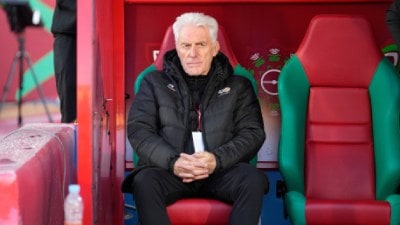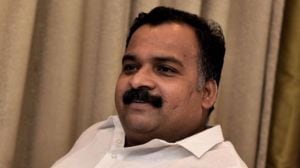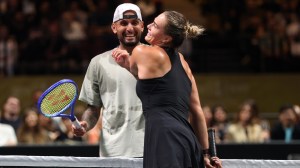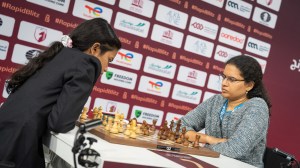Government does nothing for swimming8217;
NEW DELHI, AUG 22: There is no point blaming swimmers for not getting results,'' says Khazan Singh, former Asian Games silver medallist...

NEW DELHI, AUG 22: 8220;There is no point blaming swimmers for not getting results,8221; says Khazan Singh, former Asian Games silver medallist. 8220;We have nothing here. Just giving us a pool and a camp for a month or two before a meet is just not enough. There is no scientific training, not enough exposure. The coaches can take you only up to national level and finally, no money is being put into the sport by the government,8221; Khazan told The Indian Express today.
8220;You can see what is happening in this meet itself,8221; added Khazan, referring to the rather chaotic environs of the Talkatora complex, the venue for the ongoing Asia-Pacific swimming and diving championships.
8220;When I started swimming for India, the overall standard was much better. National records may get broken now occasionally, but the spirit is not the same,8221; says Khazan. 8220;Also, knowing there is no money in the sport in India, what swimmers aim for is to make it to the Nationals or get some sort of international exposure. It helps themin getting a college scholarship to study medicine or engineering abroad.8221;
Khazan may sound cynical, but that seems to be the way things are in the pools of India. The ripples are not being created by the records, but by rebels and controversies.
He recollects a conversation with the Chinese coach during the 1982 Asian Games in New Delhi. 8220;I was watching the Chinese swimmers, when their coach told me how long they had been training. He said that their country had already picked kids who would participate in the 1990 Games, eight years away. You need that kind of dedication and training.8221;
8220;It was different for me,8221; says Khazan. 8220;When I was training in Australia mid 1985-88, I was amazed to see the Chinese, Koreans and Americans send teams for something like the New South Wales state championships, not even the Australian nationals. They were always looking for international exposure.8221;
On Karnataka8217;s Nisha Millet, who got a year8217;s scholarship to train abroad, Khazan remarked: 8220;See whatexposure has done for Nisha. She is much better than the rest. But now that she is back in India, she will stagnate and others may improve by competing against her. Nothing else.8221;
8220;In 1998,8221; he related, 8220;I was asked to sit on the monitoring committee for swimming by the government. Each federation was being asked questions by the monitoring committee. When swimming8217;s turn came, I was asked about prospects. I told the minister, I am here to ask questions, where are the federation members ?8217; They had not been called. Finally, I asked one question: Why is swimming a grade C event no chance of winning and table tennis grade A ?8217; After all, while neither stood a chance of winning, swimming at least had past laurels in the Asiad.8221;
Khazan, who is suitably unimpressed with officialdom, is planning to set up his own academy in a couple of years. People may see his own agenda in that, but the bottomline is he is willing to make an effort to do something concrete for the country, something many ex-sportsmenor the government are not. How his academy meets costs, and later performs, is a thought for the future. But the effort alone, should make a difference.
- 01
- 02
- 03
- 04
- 05































